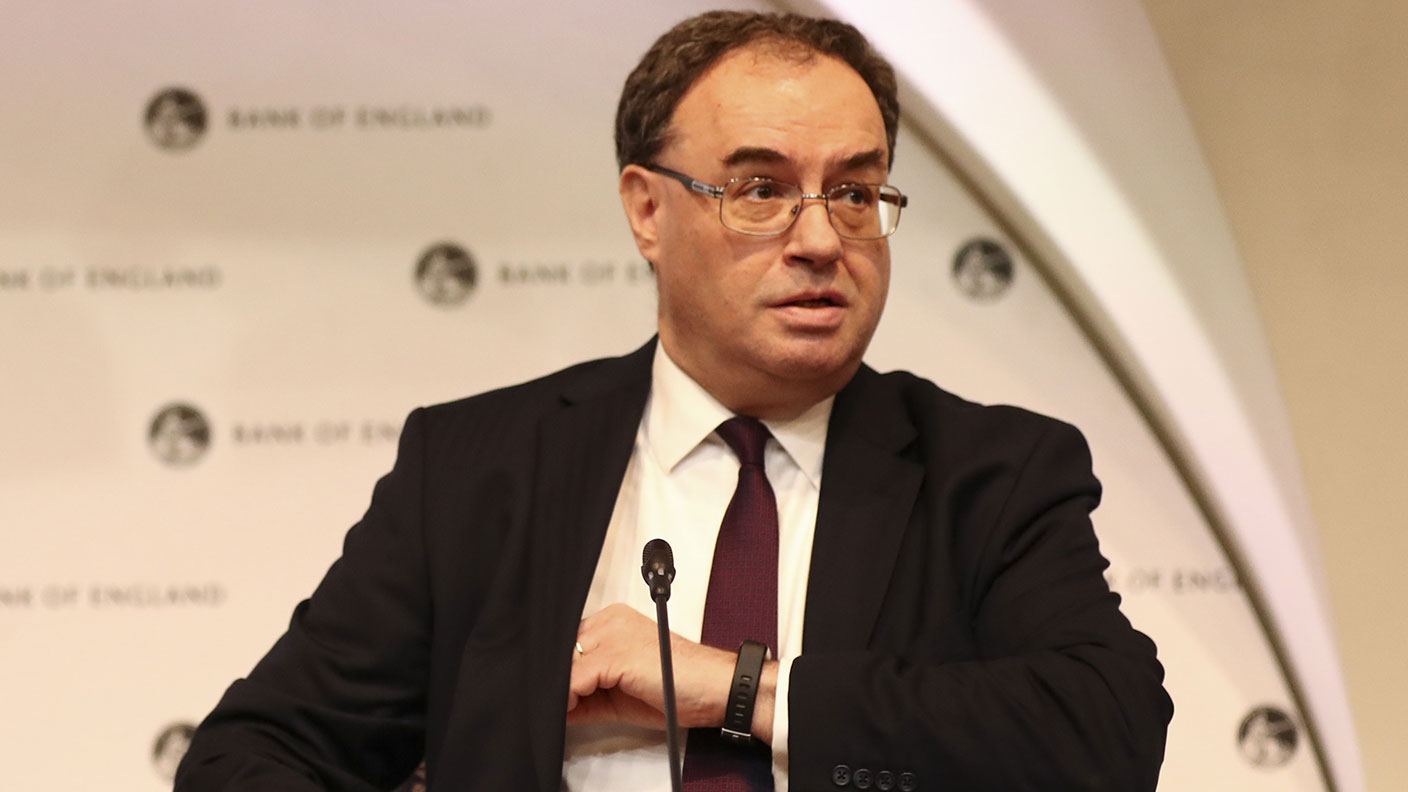Sterling or bitcoin? I know which one I trust more
Many people don’t understand or trust bitcoin. They don’t think it’s real money. But it’s more robust and less easy to manipulate than our national currency, says Dominic Frisby, Here, he explains why.


Get the latest financial news, insights and expert analysis from our award-winning MoneyWeek team, to help you understand what really matters when it comes to your finances.
You are now subscribed
Your newsletter sign-up was successful
Want to add more newsletters?

Twice daily
MoneyWeek
Get the latest financial news, insights and expert analysis from our award-winning MoneyWeek team, to help you understand what really matters when it comes to your finances.

Four times a week
Look After My Bills
Sign up to our free money-saving newsletter, filled with the latest news and expert advice to help you find the best tips and deals for managing your bills. Start saving today!
“I have to be honest, it is hard to see that bitcoin has what we tend to call intrinsic value.” That was Bank of England governor Andrew Bailey, speaking this week. He’s clearly not a bitcoin fan. Previously, he has warned bitcoin investors to "be prepared to lose all your money".
Today, we put the opposing view. We outline some of the recent actions the Bank of England has taken and we propose that, in fact, it’s hard to see how sterling has what we tend to call intrinsic value. And we warn sterling investors that, while they might not lose their money, they should be prepared for their money to lose all its purchasing power.
Bitcoin’s value derives from the hard work required to create it
One of the common criticisms of bitcoin is the vast amounts of electricity that the network consumes in so-called mining. There is a good reason for this consumption, however: mining is the process by which the bitcoin network is maintained and new coins are created. The more computer power that goes into this, and thus the more electricity that gets consumed, the stronger the network becomes.
MoneyWeek
Subscribe to MoneyWeek today and get your first six magazine issues absolutely FREE

Sign up to Money Morning
Don't miss the latest investment and personal finances news, market analysis, plus money-saving tips with our free twice-daily newsletter
Don't miss the latest investment and personal finances news, market analysis, plus money-saving tips with our free twice-daily newsletter
Gold has value because it is scarce; it is hard to find and expensive to produce. Bitcoin creator Satoshi Nakamoto’s aim was to digitally replicate the gold mining process. If gold were common, it would have no value. It is its very cost of production that gives it value (among other factors).
“But I don’t understand how bitcoins are created,” runs the common complaint. Well, you connect your high-powered computer to the bitcoin network and it processes bitcoin transactions in competition with other computers around the world. In processing transactions, it helps run the bitcoin network.
A plethora of supercomputers are now at work around the world, especially in areas where electricity is cheap (for example, in Iceland or near nuclear generators). The computer that best processes these transactions is rewarded with new bitcoins. This is how bitcoins are created. You can’t just conjure up bitcoins. You have to do some hard computer work first and thereby make your contribution to the network. And even if you do this, there is no guarantee you’ll get bitcoins at the end of it. There is risk.
It is both the scarcity of bitcoin and the resilience of the network – the incredible computer power behind it and the vast amounts of power it consumes – that make bitcoin desirable. Its value is determined by market forces alone. If nobody bought bitcoin the price would plummet. But people do buy the coins – for precisely the reasons outlined above. It is sound money. Its purchasing power increases over time – quite dramatically. There is a finite supply.
It’s much easier to create sterling than bitcoin
So to the Bank of England. On Monday afternoon, the UK’s central bank created £1.473bn – very little computer power required – and bought UK gilts with the money. The government will then go and use that money for whatever it spends it on. Coronavirus ads, that kind of thing. It’s all part of the quantitative easing (QE) programme.
This £1.473bn was added to the national debt, which now stands at over £2trn. How big is a trillion? I could spend a million pounds every day since the year of Our Lord zero, and I still would not have spent a trillion pounds. Our national debt is twice that.
Since March 2009, £745bn has been created via QE. There was no cost of production to this money. People get their knickers in a twist over how bitcoins are created – take a look at central banking! The money is then used to buy government debt – lent to the government, in other words, to fund its spending.
The understanding has always been that these gilts will be eventually sold back into private hands. However, as the Mail on Sunday reports this week, “about £100bn of these gilts have already run to maturity without being sold back to investors. That means the Treasury had to pay the Bank the face value of the bonds.
“Any normal bondholder would have kept the money. But the Bank – a nationalised entity – has promptly returned it to the Treasury. The Bank has also returned £57bn of its coupon payments – the interest it received – on the gilts.” And people say bitcoin is complicated!
“The result”, continues the Mail, “is that more than £150bn of national debt has effectively been paid off – at no cost – using money created by, and passed between, the UK's two main financial authorities”.
This is just a sleight of hand away from simply printing money to fund public spending. Direct financing of public debt is the sort of activity Weimar Germany and Zimbabwe got up to. The UK Treasury has borrowed around £175bn this year so far – three times the amount it borrowed last year – to cover the cost of its coronavirus policies.
Meanwhile, the Bank of England is priming us for negative interest rates (for more on that, read Merryn’s take here). Thanks very much. But I’ll stick with the bitcoin.
Check out Dominic’s new audiobook, The Shadowpunk Revolution, on Audible and iTunes. It’s a sci-fi rock drama about invisibility with a full rock soundtrack. And it’s very much a metaphor for bitcoin. Out now on Audible and iTunes.
Get the latest financial news, insights and expert analysis from our award-winning MoneyWeek team, to help you understand what really matters when it comes to your finances.

-
 Three key winners from the AI boom and beyond
Three key winners from the AI boom and beyondJames Harries of the Trojan Global Income Fund picks three promising stocks that transcend the hype of the AI boom
-
 RTX Corporation is a strong player in a growth market
RTX Corporation is a strong player in a growth marketRTX Corporation’s order backlog means investors can look forward to years of rising profits
-
 Why Scotland's proposed government bonds are a terrible investment
Why Scotland's proposed government bonds are a terrible investmentOpinion Politicians in Scotland pushing for “kilts” think it will strengthen the case for independence and boost financial credibility. It's more likely to backfire
-
 How have central banks evolved in the last century – and are they still fit for purpose?
How have central banks evolved in the last century – and are they still fit for purpose?The rise to power and dominance of the central banks has been a key theme in MoneyWeek in its 25 years. Has their rule been benign?
-
 Buying vs renting: is is better to own or rent your home?
Buying vs renting: is is better to own or rent your home?The higher mortgage rates of recent years have actually made renting comparatively cheaper, analysis suggests. But there are hidden costs to long term renting.
-
 Is Britain heading for a big debt crisis?
Is Britain heading for a big debt crisis?Opinion Things are not yet as bad as some reports have claimed. But they sure aren’t rosy either, says Julian Jessop
-
 Why investors can no longer trust traditional statistical indicators
Why investors can no longer trust traditional statistical indicatorsOpinion The statistical indicators and data investors have relied on for decades are no longer fit for purpose. It's time to move on, says Helen Thomas
-
 What's behind the big shift in Japanese government bonds?
What's behind the big shift in Japanese government bonds?Rising long-term Japanese government bond yields point to growing nervousness about the future – and not just inflation
-
 Bank of England resolves payments issue that threatened home sales
Bank of England resolves payments issue that threatened home salesNews Homebuyers and sellers faced an anxious wait for funds to clear on property transactions today due to issues hitting the Bank's CHAPS service.
-
 How will markets react to the next Bank of England rate decision?
How will markets react to the next Bank of England rate decision?The Bank of England is due to announce its latest interest rate decision on Thursday, 2nd November, but how will markets react?